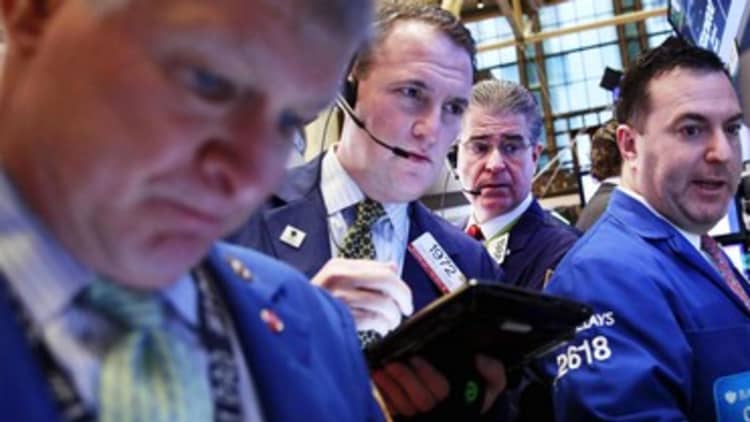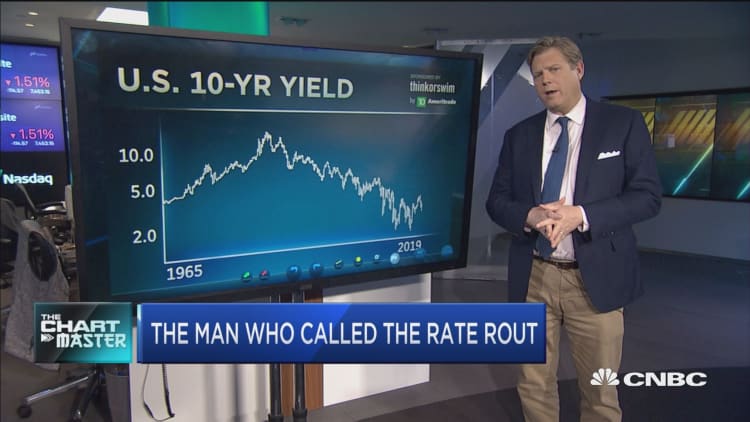The yield on the benchmark 10-year Treasury note fell below 2.07% on June's first day of trading as mounting global growth fears pushed the rate to its lowest level since September 2017.
At around 3:16 p.m. ET, the yield on the benchmark 10-year Treasury note, which moves inversely to price, had fallen 7 basis points to 2.067%, its lowest level in about 20 months. The yield on the 30-year Treasury bond was also lower at around 2.53%.
The extended an 12-basis-point drop after St. Louis Federal Reserve president James Bullard said Monday that a U.S. interest rate cut "may be warranted soon" given the rising risk to economic growth posed by global trade tensions. It was last seen at 1.83%.

""It is the first time we've heard him as voting member be so explicit about calling for cuts soon, to stoke inflationary pressure,"said Ben Jeffery, rates strategist at BMO. "Coming from someone as dovish as he is should not be a total surprise but he is still a voting member of the FOMC and if you start to see that attitude reflected by some of the centrist members that's going to be a major tone shift in the market."
The 10-year yield's tumble from 2.5% at the beginning of May inverted a portion of the yield curve, with the 3-month bill rate trading above its 10-year counterpart. An inverted yield curve is seen by experts as a sign that a recession may loom ahead.
Adding to concerns of economic slowdown, the ISM manufacturing index fell to 52.1 for May, compared to expectations for 53, according to Refinitiv estimates, its lowest print since October 2016. The largest detractors came as a result of supplier deliveries, which fell 2.6 percentage points to 52. Inventories declined 2 percentage points to 50.9.
Citing "disappointing economic data," rising odds of a rate cut from the Federal Reserve, and escalating trade tensions, J.P. Morgan cut its year-end target for the 10-year yield to 1.75% from 2.45%.
"Until recently, our base case scenario was that the increase in tariffs would contribute to a further slowing in capex spending this year but that it would not translate to an outright deterioration in the economy," J.P. Morgan interest rates strategist Jay Barry wrote.

"However, trade related headwinds to the growth outlook have continued to build, and our economists believe that the latest developments this week are likely to have lasting damaging effects on business confidence and should thus prompt the Fed to respond," he added.
The final reading of manufacturing PMI (Purchasing Managers' Index) showed manufacturing activity slumped to its slowest pace since September 2009.
— CNBC's Patti Domm contributed reporting.


